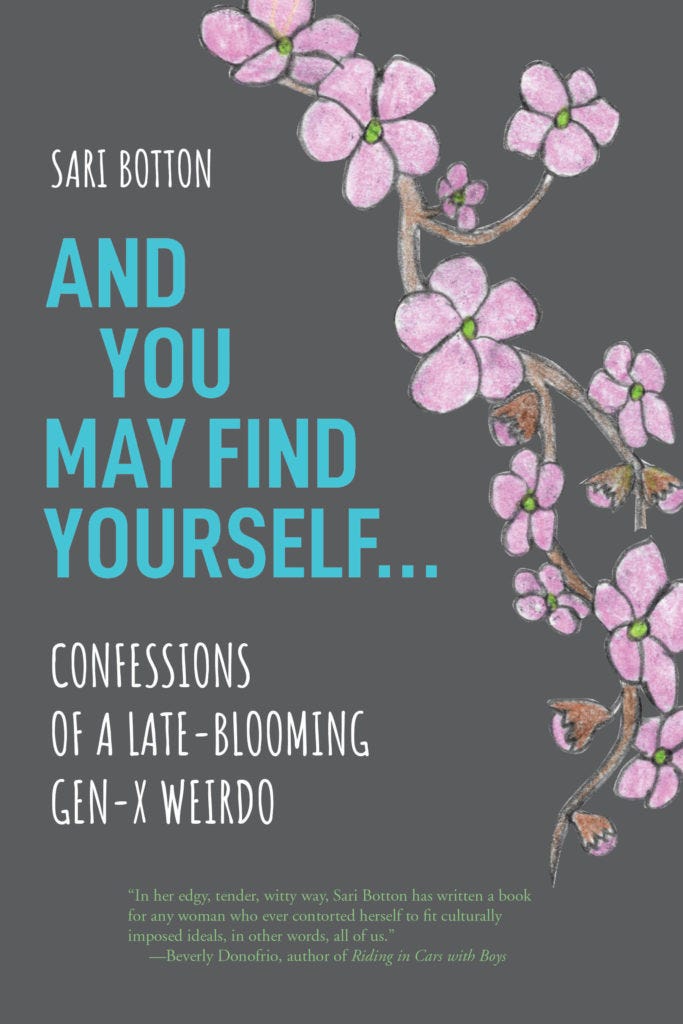Screaming Into the Void
Writing about abuse just got riskier. (Plus: News about my book release and related events.)
God damnit.
I’m so angry about the verdict in the Depp/Heard defamation case. How, in the year 2022, is speaking up about well documented abuse a greater offense than the abuse itself??? Or even an offense at all???
(There’s so much wrong here, and so many writers who can parse it better than I can. Don’t miss Moira Donegan’s smart take on the trial as an “orgy of misogyny” in The Guardian, Jessica Winter on the effect this will have on survivors, in The New Yorker, and Michael Hobbes on the dumb conspiracy theory and character assassination that people bought into.)
What I can speak to with some degree of authority is the way this will likely set us back regarding what we can publish about abuse we’ve endured, in op-eds, essays, and memoirs. I say this as a survivor, as a writer, and as an editor; I say this as someone who blurred the living daylights out of an abuser in my book; who wrote incredibly vaguely (and too generously, to be honest) about the abuse and the abuser, not to mention other men’s asshole behavior; and who is maybe a bit concerned now about even my vague beating-around-the-bush.
How, in the year 2022, is speaking up about well documented abuse a greater offense than the abuse itself??? Or even an offense at all???
Honestly, even before the verdict, writing about abuse was already dangerous and legally dicey. I dealt with this on several occasions in the five years I served as essays editor at Longreads.
In one instance, our legal team compelled me to kill an excellent reported piece written by two women journalists—women who’d discovered they were both in allegedly “exclusive” relationships with the same emotionally abusive man, a guy who also happened to have five other women convinced they were his only girlfriend. The journalists compared notes, joined forces, and interviewed the other women. Through the writing and editing of the piece, they all became each other’s allies.
The piece had gone through a few rounds of fact-checking and was nearly ready to go when I got word that our lawyers were concerned the man in question, known to be litigious, could reasonably sue for either “defamation” or “invasion of privacy.” Even if he didn’t stand a chance of winning in court, he could have tied us up there just by filing a suit, and it would have cost the publication dearly to defend itself and the writers.
Even in those five years between 2017 and 2022, it was risky to speak out. Now, it’s even more terrifying and potentially punishing.
The author of another long-form essay I worked on pulled it early in the editing process because her husband threatened to sue. (That also significantly threatened, and ultimately, delayed the publication of her memoir.) And another sort of meta piece—on the consequences of speaking out—took many months to clear fact-checking, and even more time before the author felt comfortable going to press.
Yet another writer felt she could only publish anonymously her essay about her husband’s abuse—sparked by his jealousy over her professional success, while he continued to flounder in the same field—and the steep financial and professional cost of fighting him in court.
There were more related instances, but these were the most remarkable. All of them occurred after Jodi Kantor and Meghan Twohey and Ronan Farrow broke stories on Harvey Weinstein and other abusers in 2017, and the #MeToo movement went into full swing. Back then, I naively assumed we were moving in a better direction, that the winds of change were shifting to favor survivors, making it safer to speak out—to name not only what happened to you, but the perpetrator as well.
I still believe it’s valuable to write and tell our stories—for ourselves, and for each other. More than valuable; it’s imperative.
But, no, even in those five years between 2017 and 2022, it was risky to speak out. Now, it’s even more terrifying and potentially punishing.
(Incidentally, before the trial I had no real opinion of Johnny Depp and gave him little thought. Now I think he’s a complete monster. He defamed himself, as far as I’m concerned, through this whole godforsaken endeavor.)
I still believe it’s valuable to write and tell our stories—for ourselves, and for each other. More than valuable; it’s imperative. Forget about getting through to men, and other powerful naysayers. We need to let each other know we are not alone.
What that will look like on the page (or the webpage) will depend on how publishers and courts respond, going forward. Sadly, this verdict will likely lead to greater censorship.
🚨 In other news, my book is now available for purchase online! Publisher’s Weekly liked it!:“Now in her mid-50s, Botton recalls in heartfelt and witty prose the pivotal moments that have shaped her.”
I’d be so grateful if you’d order it—through Bookshop, or Amazon, or Barnes & Noble, or Indiebound, through your independent bookseller! You can also find these links at my publisher Heliotrope's website.
Below are links to readings and other events for the book:
June 11th, 2pm Tinker Street Social Reading Series, presented by The Golden Notebook in Woodstock, NY
June 13th, 8pm Franklin Park Reading Series in Crown Heights, Brooklyn
June 14th, 8pm Book launch at Book Club Bar in the East Village. In conversation with author Julie Klam.
June 26th, 5pm In conversation with Chloe Caldwell, author of the newly released memoir, The Red Zone: A Love Story, at Rough Draft Bar & Books in Kingston, NY.
I’d love to see you at one of these!





I hear you. And I agree it is chilling and disgusting. But I daresay this particular story isn't over yet.